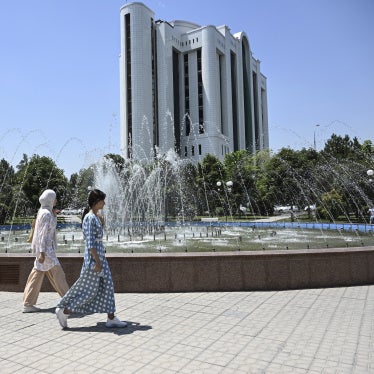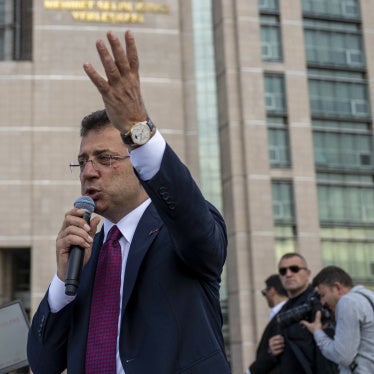Elections in Ukraine have resulted in confectionary magnate Petro Poroshenko winning the presidency. He has his work cut out for him after turbulent months of armed violence in Kiev, Russia’s annexation of Crimea, and an anti-Kiev insurgency in the east that has spiralled out of control, writes Yulia Gorbunova in Donetsk.
Prior to the vote, armed fighters from the self-proclaimed “People’s Republics” of Luhansk and Donetsk, which held referendums for independence on May 11, issued decrees banning the elections. They also abducted and beat political activists, raided offices, and terrorised members of district electoral committees to ensure that voting didn’t take place there.
In the days before the elections, my colleague and I traveled through these regions, which were under either partial or complete control of angry, disheveled — sometimes drunk — insurgents armed with Kalashnikovs and rocket launchers, who set up dozens of checkpoints in the area.
In the village of Semyonovka, we met Andrei and his wife, who told us that villagers did not get their monthly pension payments in May, and for the last 24 hours they had had no electricity or hot water. But that was nothing, they said, compared to being caught in the line of fire during the ongoing fighting between the insurgents and the Ukrainian army.
Their village is situated near Karachun hill, site of a Ukrainian military base. The Ukrainian government has been carrying out a counterinsurgency operation in the east for several weeks now, and the exchange of mortar fire between the insurgents and the army has intensified in the recent days.
Andrei’s wife said most families on her street were hiding in the basement every night fearing explosions. Nine houses in the village had been hit in the last week alone, five of them during one particularly bad night on May 22-23.
The next day, we drove to a psychiatric hospital in Sloviansk, which someone told us was struck by a shell early that morning. Two nurses confirmed that the hospital’s in-patient wing had been hit at around 5 a.m. They said that the patients, most of whom are elderly and immobile, as well as the hospital staff, were evacuated the night before, when a group of armed insurgents knocked on the hospital’s door and shouted for everyone to hide in the basement.
The fact the insurgents knew about the upcoming shelling might indicate that they had planned and started that fight, but the nurses blamed the military. Valentina told us that there were rumors Ukrainian soldiers were “terrorizing” local residents and attacking young women.
We could not confirm whether this was true, but we do know that the rumors — and propaganda from both sides — have driven many people to despair here.
The day before leaving Donetsk, we wandered into an anti-Kiev meeting on Lenin Square in the center of the city. There were 50 people there at most. Some looked drunk and agitated. Several families with kids were watching from across the road, and some held balloons and clapped from time to time. From an improvised stage, a woman praised the Independent Republic of Donetsk and read a poem with the refrain “Damn you, Ukraine, this is not our country any more.”
We spoke to many people in the east who shared that view and whose distrust in the Kiev government ran so deep that they preferred to create their own country independent of Ukraine. Most we came across, however, did not support the insurgents but seemed both terrified and completely confused about whom to believe. In no small part, this is due both to mistakes that the new authorities have made and to unrelenting Russian propaganda that gave birth to the myth of the “fascist Junta” that took over the leadership of their country.
Now that the election is over, flocks of foreign journalists who have been stationed in Donetsk and elsewhere in Ukraine for weeks are leaving. International organizations such as the Organization for Security and Cooperation in Europe and the United Nations are staying behind to help the new authorities with rebuilding democratic institutions and navigating their path out of this turmoil in a way that is less violent and respects rule of law.
The new president and the new government are faced with the staggering challenge of dealing with armed groups who for weeks have been beating and abducting those who do not support their vision for Ukraine’s future. Then there’s the longer-term difficulty of bridging a huge gap between the east and the rest of Ukraine, slowly building up trust for the new government and ensuring that people in the east feel that their rights will be respected and they will be both represented and included in a meaningful way.
Those are two enormous hurdles to clear before anyone can say this election was a positive turning point.









